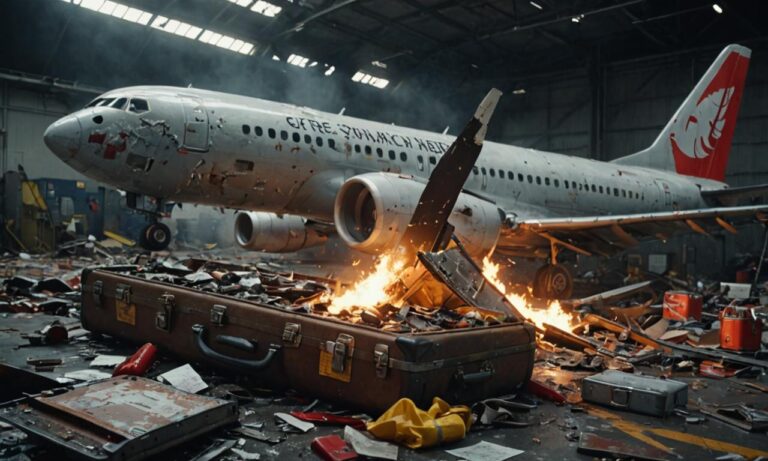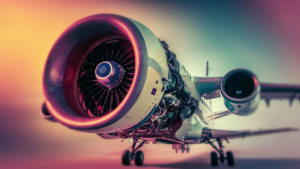Plane crashes are tragic events that can result in significant loss of life and property. Understanding the factors that contribute to plane crashes is crucial for improving aviation safety and preventing future accidents.
Causes of Plane Crashes
Plane crashes can occur due to various factors, including mechanical failures, human error, adverse weather conditions, and external threats such as terrorism or bird strikes. Mechanical failures may result from issues with the aircraft’s engines, navigation systems, or structural integrity.
Human error, including pilot error, air traffic controller mistakes, or maintenance oversights, can also lead to plane crashes. Adverse weather conditions, such as fog, thunderstorms, or strong winds, can create hazardous flying conditions and increase the risk of accidents.
External threats, such as hijackings or terrorist attacks, pose additional risks to aviation safety and can result in catastrophic consequences.
Preventive Measures
To reduce the likelihood of plane crashes, aviation authorities and industry stakeholders implement various preventive measures. These measures include stringent safety regulations, comprehensive pilot training programs, regular aircraft maintenance inspections, and advanced technology solutions.
Improvements in aircraft design, such as enhanced structural integrity and redundant systems, also contribute to safer flying experiences. Additionally, advancements in weather forecasting and air traffic management systems help pilots and air traffic controllers make informed decisions to avoid hazardous conditions.
Emergency Preparedness
Despite proactive safety measures, plane crashes can still occur unexpectedly. Therefore, it is essential for airlines, airports, and emergency responders to have robust emergency preparedness plans in place. These plans should include procedures for rapid response, evacuation, medical assistance, and coordination with local authorities.
Training programs and drills help ensure that airline staff and emergency responders are prepared to effectively manage crisis situations and minimize casualties.
Investigating Plane Crashes
Following a plane crash, thorough investigations are conducted to determine the cause and contributing factors. Aviation authorities, such as the National Transportation Safety Board (NTSB) in the United States, lead these investigations, which involve analyzing flight data recorders, cockpit voice recordings, and wreckage debris.
By identifying the root causes of plane crashes, investigators can recommend safety improvements and regulatory changes to prevent similar accidents in the future.
Plane crashes are complex events influenced by various factors, including mechanical failures, human error, weather conditions, and external threats. Preventing plane crashes requires a comprehensive approach that includes strict safety regulations, advanced technology solutions, emergency preparedness, and thorough investigations.
By continually striving to enhance aviation safety practices, we can mitigate the risks associated with air travel and strive for a future where plane crashes are rare occurrences.
Impact on Aviation Industry
Plane crashes not only result in loss of life and property but also have significant implications for the aviation industry. Following a crash, airlines may experience a decline in passenger trust, leading to decreased ticket sales and revenue. Additionally, insurers may increase premiums for airlines operating in regions with a history of crashes, affecting operational costs.
Technological Innovations
Advancements in technology play a crucial role in enhancing aviation safety and preventing plane crashes. Innovations such as collision avoidance systems, automated flight controls, and real-time monitoring solutions have significantly reduced the likelihood of accidents. Continued investment in research and development is essential to leverage technology for further improvements in aviation safety.
Frequently Asked Questions
| Question | Answer |
|---|---|
| How common are plane crashes? | Plane crashes are relatively rare events, considering the vast number of flights conducted daily worldwide. However, even though statistically rare, the consequences can be severe. |
| What role does pilot training play in preventing crashes? | Pilot training is critical in ensuring safe flight operations. Well-trained pilots can effectively handle emergency situations and mitigate risks, reducing the likelihood of crashes. |
| How do aviation authorities investigate plane crashes? | Aviation authorities conduct thorough investigations following a crash, utilizing flight data recorders, cockpit voice recordings, and wreckage analysis to determine the cause and contributing factors. |
| What measures can passengers take to increase their safety during flights? | Passengers can enhance their safety by following crew instructions, wearing seat belts during the flight, and familiarizing themselves with emergency procedures outlined in pre-flight safety briefings. |
See also:






